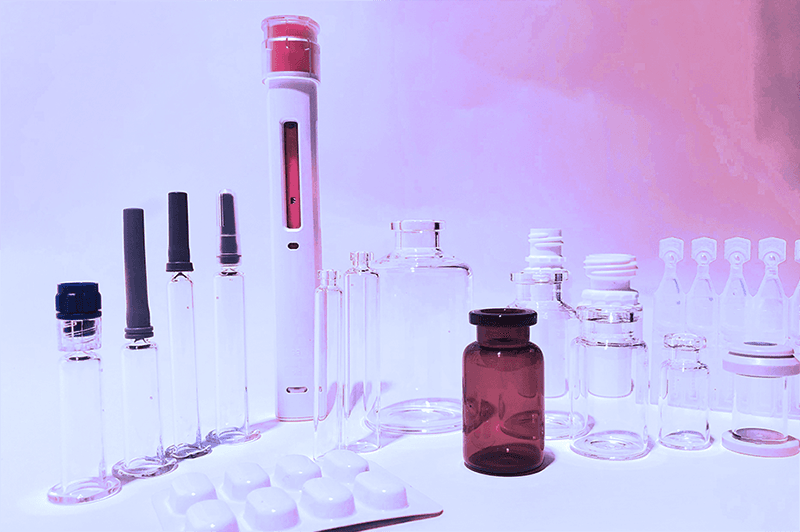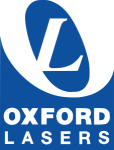Case Study in CCIT Innovation

Creating Positive Controls in Fully Assembled Autoinjectors
The dawn of personalised and home-centered health care is upon us. In an effort to improve health outcomes, reduce costs, and empower individuals, the healthcare industry is putting time and money into developing and popularising Point of Use (POU) devices for the delivery of life-changing drugs and therapies. The autoinjector syringe is one of the most common and ubiquitous of these devices.
A great deal of technology, experience, and material and mechanical expertise has gone into the development of the autoinjector to ensure its efficacy, ease of use, and reliability. Ensuring that these devices meet lifetime, safety, and performance requirements through the use of Container Closure Integrity Testing (CCIT) is a key part of the overall design and manufacture of autoinjectors. Positive controls that have been laser drilled with known, calibrated hole sizes are necessary to ensure that the CCIT process is valid and repeatable.
To know your leak-detecting system is working, use a positive control.
What is a Positive Control?
A positive control is a testing sample that is created to generate an intended result. Positive controls are used in experiments to verify that the testing procedure is working as expected. In CCI testing, a sample is created with defects (leaks) at a defined leak rate on purpose. It is then placed within the testing system to confirm the system is working correctly and therefore the equipment and the batch can be validated.
The Challenge with Autoinjectors
Autoinjectors present challenges, as they are essentially a “package within a package.” A typical fully assembled autoinjector consists of a glass syringe (where the drug product resides) that is held in a larger, plastic housing with a transparent plastic window. The window is necessary for the manufacturer and user to see that there is drug product in the syringe. The overall plastic housing is the actual device that the users grasp to self-inject medication.
The Challenge, then, is how to directly drill through the transparent, plastic window of the outer housing, and then drill through the glass syringe itself, such that a known hole/leak can be introduced and measured, thereby producing a positive control for CCIT.
A mid-sized pharmaceutical company was searching for a positive control package for their autoinjector product that could be used in a CCIT method validation. Because they wanted to use a pre-assembled autoinjector, the customer approached Oxford Lasers to develop a new and reliable method to drill a certified defect into the pre-assembled package. In industry, this had not been achieved before.
The Solution to Create Positive Controls with Laser Drilling
Oxford Lasers has used its unique and extensive experience to solve this problem. Through the use of the correct laser-pulse width, pulse energy, wavelength, and repetition rate, Oxford Lasers has developed a process that enables the drilling of both the transparent, plastic-housing window and the inner glass syringe. This two-step process enabled the outer window to first be accurately drilled, so as to enable direct access to the inner glass window, which of course is the functional element of the drug container. Once the outer window was drilled, a new parameter set was used to accurately drill a precise hole in the glass syringe.
In this case study, Oxford Lasers used optical microscopy to accurately measure the hole and produce a Certificate of Conformity (CoC). With a CoC in hand, our customer could now confidently run their CCIT procedures and complete their leak-test validations.
Alternate Configurations
To date, customers have only had the option to laser drill the glass syringe directly before the glass syringe is installed into the plastic outer housing. Oxford Lasers also offers this option including using flow effective diameter (FED) to produce a CoC. However, the process described in this case study has been developed specifically for fully assembled autoinjectors and is unique in the industry.
Precise and Consistent - down to 2 µm Oxford Lasers Advantage
Not all laser drilling is the same. Our precise laser-drilling methodology creates consistent calibrated micro-holes into your containers to create dependable positive controls with certified holes down to 2 µm. Our ultra-high precision laser drilling creates consistent features that are free of stress cracking. We give you the assurance of repeatable quality testing with dependable positive controls, thereby enabling you to confirm your CCIT systems and processes including dye ingress, vacuum/pressure decay, mass extraction, headspace analysis or HVLD testing systems.
History of Innovation
Oxford Lasers has a long-term history of laser innovation with nearly fifty years of serving manufacturing industries with expertise. We constantly develop new processing techniques to help our clients achieve their goals through precision laser drilling and customised attention.
Contact us for a Quote
We support CCIT quality programmes and ship across the globe. Click below to request a quote for precision laser drilling in your packaging to create reliable positive controls. Have a question? Send us a message and Contact Us.
We Laser Drill More than Autoinjectors
We are a world-class provider of laser drilling services to create positive controls for CCIT. We are known for our quality micromachining capabilities using our own laser systems that we manufacture and use extensively for laser processing ultra-high precision components to advanced manufacturing industries around the globe.
Click below to download our CCIT catalogue to see our listings for vials, syringes, IV bags, blister packs and more.

